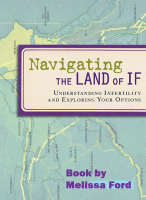Evaluating the Prague Spring or Tet offensive is one thing, but the demise of the left-utopian soul is truly a theme for our times

Do you remember Mick Jagger showing up at Grosvenor Square, the trouble at the LSE and les événements de mai? Do the names of such campus icons as Daniel Cohn-Bendit and Rudi Dutschke mean much? If not - and the odds aren't good if you're much under 55 - don't worry. The 40th anniversary of the convulsive events of 1968 is upon us, and any time now it might feel as if we've all fallen into a time warp.
Coverage has been spreading since January. As part of a London-wide season titled All Power To The Imagination, the Barbican has scheduled a 1968 celebration called History Is Now, and the Hayward Gallery will open an exhibition of the silk-screened calls to arms pasted around Paris. The obligatory South Bank Show special was screened last Sunday - though as if to trump the rest, Radio 4 is broadcasting not only a series of substantial programmes, but five-minute "sound capsules" to be aired every day for six months.
These will include sober evaluations of such watershed episodes as the Tet offensive, the Prague Spring and the assassination of Martin Luther King, but there's a fascination in the upsurge of protest forever parcelled up as Student Revolt. In among the stories of yippies, Maoists, Enragés and occupation committees, you can already make out everything from sneers to sighing nostalgia, but there are also themes that speak volumes about our times.
In France, as evidenced by Nicolas Sarkozy's self-proclaimed quest to "liquidate" 1968's legacy, the anniversary highlights the battle between what Sarko once called "morality, authority, work and national identity" and the supposedly pernicious ideas of the liberal left (though how the appetites of "President Bling-Bling" fit into all that is an interesting question). On this side of the Channel, things are far less charged, but the flood of retrospection serves to point up one particularly resonant subject - the demise of a left-utopian spirit that we might do well to rediscover.
I wasn't even born in 1968, but the year's events - and in particular, the French end of things - have long filled me with generational envy. In 1988 the 20th anniversary seemed to make everything clear, when a brilliant Channel 4 season revealed what my lot seemed to be lacking: the rebel mindset, certainly, but also a strain of politics so all-encompassing that it seemed dizzying. Two decades on, we were presented with pop culture timidly pulling away from any meaningful engagement, and a left fragmenting into arcane irrelevance or the dominance of single issues. Our predecessors seemed to have confidently taken issue with just about everything.
Looking at lists of slogans daubed on walls in the Latin Quarter only deepened the tantalising sense of a world long gone. As well as the stuff that had quickly congealed into cliche ("Be realistic, demand the impossible"), there were endless examples at once audacious and seductive: "They are buying your happiness - steal it back"; "The alarm clock rings - first humiliation of the day"; "You will all finish up dying from comfort"; and, perhaps most presciently, "Forests came before men - the desert comes afterwards."
The best place to start, and finish, remains Guy Debord's 1967 treatise The Society of the Spectacle, the set text of those mercurial revolutionaries the Situationists. Built from headache-inducing prose, it now reads like an early insight into the overmediated age that, back then, was just beginning. "In societies where modern conditions of production prevail," goes its opening passage, "all of life presents itself as an immense accumulation of spectacles. Everything that was directly lived has moved away into a representation."
Hopelessly damaged by alcoholism, Debord committed suicide in 1994, an act seen as one last protest against the fact that his beloved Paris had lost its anarchistic aspect and become so consumerised. A world where celebrity culture - about which Debord prophetically theorised - runs rampant, and time spent online supplants human contact, represents the grim fruition of just about everything he wrote about.
But let's not get carried away. In France, les événements were swiftly followed by the overwhelming election victory of the Gaullist right. At 40 years' distance, plenty of 1968 pamphlets and monographs seem to lose the idea that activism is meant to focus on changing lives, and end up luxuriating in politics-as-literature. And some of those who have kept 1968's flame flickering are hardly the most appealing bunch. A couple of years ago, I reluctantly stood in for one of Debord's biographers at a literary event and talked about a book I'd written that focused on the 2005 election and Labour's record in office. For one grumpy soixante-huitard, a conversation about the working families tax credit was the last straw, and he flipped, apparently desperate to get back to commodity fetishism and spectacular consumption rather than the urgent stuff of the real world.
Then again, he may have had half a point. To look back 40 years is partly to understand that if you retreat from big ideas you risk losing essential political equipment - Nick Davies's recent book Flat Earth News, for example, reveals that the word "capitalism" is less common in the modern press than "crap". Moreover, if you dispense with romantic and existential aspects of politics as mere frippery, you may well knock away the philosophical foundation of what you profess to believe. A famous Parisian graffito captures the essential point: "People who talk about revolution and class struggle without referring explicitly to everyday life, without understanding what is subversive about love and what is positive in the refusal of constraint - such people have a corpse in their mouth."
To be fair, the more clued-up parts of the anti-globalisation movement seem to understand all this (witness the very '68-esque slogan "Another world is possible"), though their efforts hardly detract from the predicament of those of us too young to have once occupied libraries and daubed walls. As part of the long defeat that spread through the 70s and 80s, the left allowed idealism to be appropriated by its enemies, and look where it got us. Exactly 20 years after the events of May '68, Margaret Thatcher chillingly claimed that "Economics are the method; the object is to change the soul." So it proved: we may now live in a utopia, but it's the one dreamt up by the free-market right.
The Guardian, Friday March 21 2008














No comments:
Post a Comment